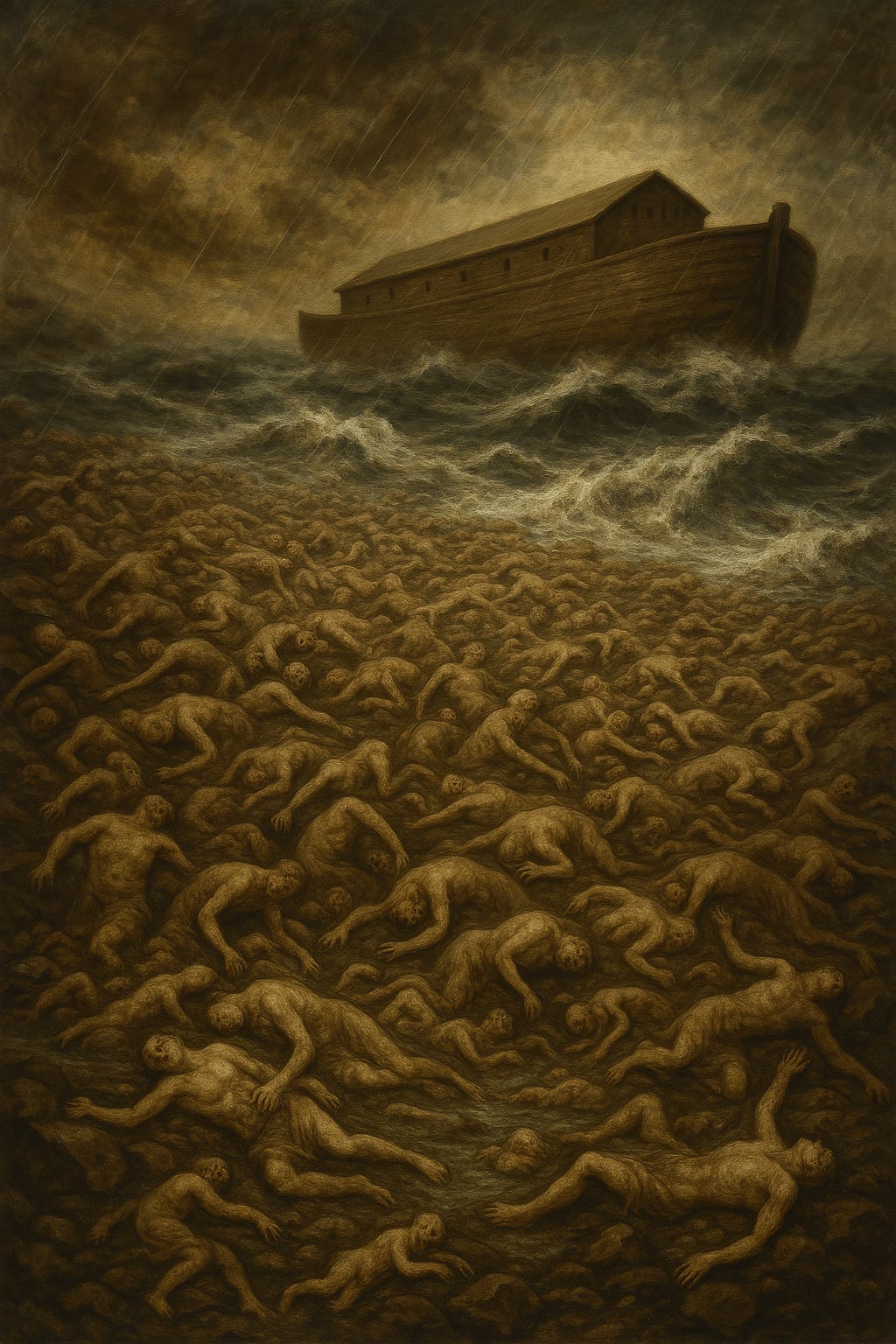The story of Noah’s Ark, long cherished as a tale of hope, obedience, and divine promise, is often sanitized in religious instruction and children’s storybooks. The image of animals marching two-by-two onto a wooden vessel, guided by a righteous man chosen by God, is deeply embedded in the cultural consciousness of many religious traditions. But behind this comforting veneer lies a narrative of unimaginable violence—an ancient tale of mass extinction, orchestrated not by a capricious force of nature or some mythological evil, but by the very deity that billions worship as just and loving.
The Hebrew Bible’s account in Genesis 6–9 is explicit: God looks upon the Earth, sees human corruption, and regrets having created life. The response? An extermination of nearly every living being, sparing only a chosen few. This is not an allegory of divine mercy—it is a cosmic genocide. By contemporary standards, this act defies ethical justification. It is not simply the punishment of the wicked; it is the indiscriminate annihilation of men, women, children, infants, and animals.
The flood is not about Noah. It is about a deity’s overwhelming wrath and its chilling implications. The morality embedded in this story demands interrogation. If we were to substitute a human actor for God—if a king or a general responded to widespread crime by carpet-bombing entire cities, killing every resident save a handful—we would not call it justice. We would call it atrocity. The biblical flood, then, can be viewed as an ancient theology’s attempt to rationalize a catastrophe, or worse, to sanctify cruelty in the name of righteousness.
In a modern context, the term "Holocaust" is used to describe systematic, state-sponsored extermination. While there are profound differences between the 20th-century Holocaust and the flood narrative, the linguistic parallel is not inappropriate. Genesis describes a global purge—not just of humanity but of creation itself. If we are to take the story literally, then the God of Genesis is responsible for the largest act of mass murder ever recorded in any sacred text. If we are to take it symbolically, then what does this story symbolize about divine will, human worth, and the nature of justice?
This is not merely a theological question but a moral one. What kind of spiritual system upholds such a story as sacred? What does it mean to teach this story to children as a lesson in faith? How should we respond to a deity who, according to the text, regrets their own creation and chooses obliteration over transformation?
For some, the answer lies in the context of ancient mythology. They argue that the flood story reflects the anxieties and cosmology of early civilizations struggling to understand suffering, evil, and divine judgment. But for those who take the Bible as the literal word of God, the implications are harder to dismiss. If the God of Genesis is to be worshiped, then one must grapple with the morality of that worship. Is faith compatible with fear when the deity in question is capable of such total annihilation?
To revere this God without questioning the ethics of such a cataclysm is to abdicate our moral reasoning. The Noah story is not merely an ancient tale—it is a theological mirror. And what it reflects may be less about human sin and more about the brutality encoded in certain concepts of divinity.
If we are to progress as moral beings, our stories must evolve too. They must be interrogated, not inherited blindly. And when a story tells us that salvation for one family required the deaths of millions, we should not praise the survivor’s piety before we mourn the unspoken dead.







